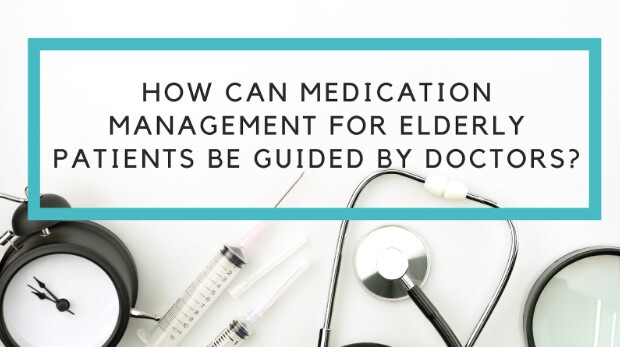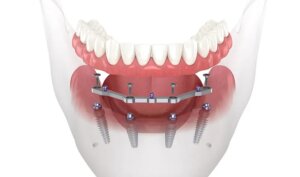
How Can Medication Management for Elderly Patients Be Guided by Doctors
Taking medicines the right way is super important for staying healthy. But for older patients, taking many different medicines on complicated schedules is confusing. It’s easy to make mistakes or forget doses. This can be very dangerous. Doctors have an important job in helping older patients take their medicines safely and correctly.
As we get older, it gets harder to remember all the instructions for different pills and medicines. It’s also easier to mix up medicines or take them at the wrong time. Older people may have a hard time reading tiny labels on bottles too. Taking medicines wrong can make you really sick. Doctors want to help patients avoid mistakes so they stay healthy.
Doctors can make medicine routines simpler for older adults. They teach patients about every medicine—what it’s for and how to take it. Doctors check in a lot to catch any issues early. They may recommend handy tools like reminders. Doctors work hard to tailor medicine plans that make sense for each patient. With a doctor’s guidance, older adults can manage even complicated medicines correctly. This helps them stay strong and feel their best!
Challenges of Medication Management for the Elderly
As people get older, taking medicines right gets harder. Their memory can get worse, so they forget if they took their pills. The tiny words on the bottle labels are hard to read. Some people take many pills at different times of the day. It gets confusing.
Their hands get shaky and weak too. So popping open pill bottles and picking up tiny pills gets tricky. Plus, medicines can be expensive. People on fixed incomes may not be able to pay for all their medicines. This means they may skip some.
Also, some medicines don’t mix well together or cause side effects. Older people often take many drugs, so this risk goes up. With all these issues, it’s easy for older folks to take the wrong medicines, which can make them really sick. Finding a trusted Medicare doctor near me who understands these challenges is key.
They give tips on using pill boxes to remember. Or have families call to remind them about medicines. Nurses explain what each pill is for in simple words. Doctors make sure medicines are helping, not hurting. With this support, the challenges can be managed. Seniors can take medicines properly and stay healthy.
According to a study by the National Council on Aging, the top medication management challenges faced by seniors are:
Data Source: National Council on Aging Senior Medication Adherence Study
How Doctors Guide Elderly Patient Medication Management
Simplifying Regimens
Doctors can optimize regimens by:
- Prescribing extended-release formulations to reduce frequent dosing.
- Consolidating medications for one condition into combination pills.
- Coordinating with other providers to minimize complex polypharmacy.
- Discontinuing unnecessary or duplicative medications.
- Recommending easy-to-use delivery methods like auto-injectors.
Providing Medication Education
Thorough education helps patients understand their regimens:
- Clearly explaining what each medication treats and how/when to take it.
- Demonstrating proper use and administration of medications.
- Reviewing common side effects and drug interactions.
- Creating printed medication schedules with clear icons and text.
Ongoing Monitoring and Support
Regular check-ins ensure adherence:
- Asking patients to bring all medications to appointments for review.
- Following up between visits on adherence and rectifying issues.
- Having nurses or pharmacists conduct home medication reconciliations.
- Leveraging medication therapy management services from pharmacies.
Utilizing Technology
Doctors can recommend tools like:
- Automatic pill dispensers providing scheduled dosing.
- Smart bottle caps tracking openings and reminders.
- Medication management apps with dosage schedules and reminders.
- Text alerts and phone calls for adherence reminders.
Referrals to Additional Support
Doctors can connect patients with:
- In-home healthcare aides to assist with medication administration.
- Delivery services for medications and refill reminders.
- Transportation assistance getting to and from the pharmacy.
- Social services to help patients afford medications.
Best Practices for Doctors Guiding Elderly Patient Medication Management
To optimize adherence and safety, doctors should:
- Conduct thorough medication reconciliations at every visit. They must review all prescriptions, OTCs, vitamins, and supplements.
- Coordinate with specialists and pharmacists to minimize complex regimens and drug interactions.
- Screen and monitor for cognitive impairment that could impact adherence.
- Tailor regimens to patient abilities considering dexterity, vision, hearing, and memory challenges.
- Provide clear education on each medication – purpose, schedule, administration, storage, side effects.
- Simplify complex regimens by consolidating medications and extended-release formulations.
- Follow up regularly to identify adherence issues and intercede early.
- Connect patients to community resources for financial assistance, transportation, and in-home support.
- Recommend technologies like reminders, organizers, and dispensers to support independence.
Conclusion
Taking medicine the right way is important for older people to stay healthy. But it can be hard for them to remember to take their pills on time. Doctors can help by making sure older patients are taking the best medicines for them.
The doctors can give them tips to help them remember like setting alarms or using a pill box. Nurses and pharmacists can also help remind patients when to take medicines. They can call or text to check in.
Making sure older people know why they take each medicine is important too. If they don’t know why it matters, they may not take it. Nurses and doctors should explain what each pill does. They can use simple words and drawings if needed. Checking on patients often is key.
The medical team needs to ask if they are having any problems taking their medicines. If they are, the doctors can change the medicines to make it easier. With good instructions, reminders, and support, older patients can take their medicines the right way. This will help them stay as healthy as possible.
Frequently Asked Questions
How can doctors simplify complex medication regimens for the elderly?
Doctors can consolidate medications. They can prescribe extended-release formulations, and discontinue non-essential medications. They can work together with other providers and suggest easier delivery method.
What kinds of medication education do doctors provide to elderly patients?
Thorough education includes explaining the purpose and instructions for each medication. It must also demonstrate proper administration, review side effects and interactions. Provide easy-to-understand written medication schedules.
How should doctors monitor elderly patients for medication adherence?
Doctors should conduct medication reconciliations at every visit. Follow up between visits on adherence is a must. They must have nurses or pharmacists do home medication reviews. These nurses will assist in utilizing digital tools for reminders and tracking.
What medication management technology can doctors recommend to elderly patients?
Useful technologies include electronic pill organizers, smart bottle caps, and medication reminder apps. Text alerts, and in-home automated medication dispensers can also be recommended.
How can doctors help elderly patients afford their medications?
Doctors can connect patients to financial assistance programs. They can prescribe generics when possible. By providing manufacturer rebate information. Also, by referring to community resources for transportation and in-home medication administration support.






